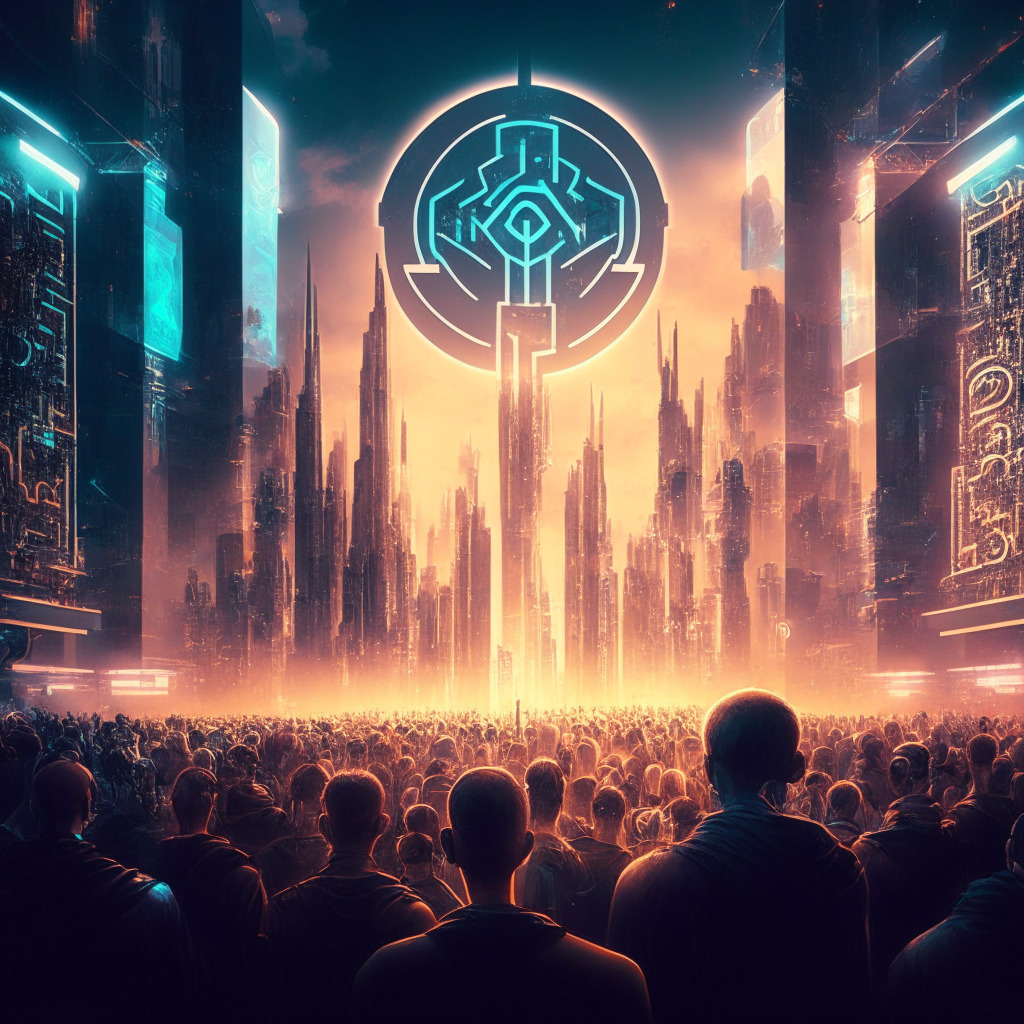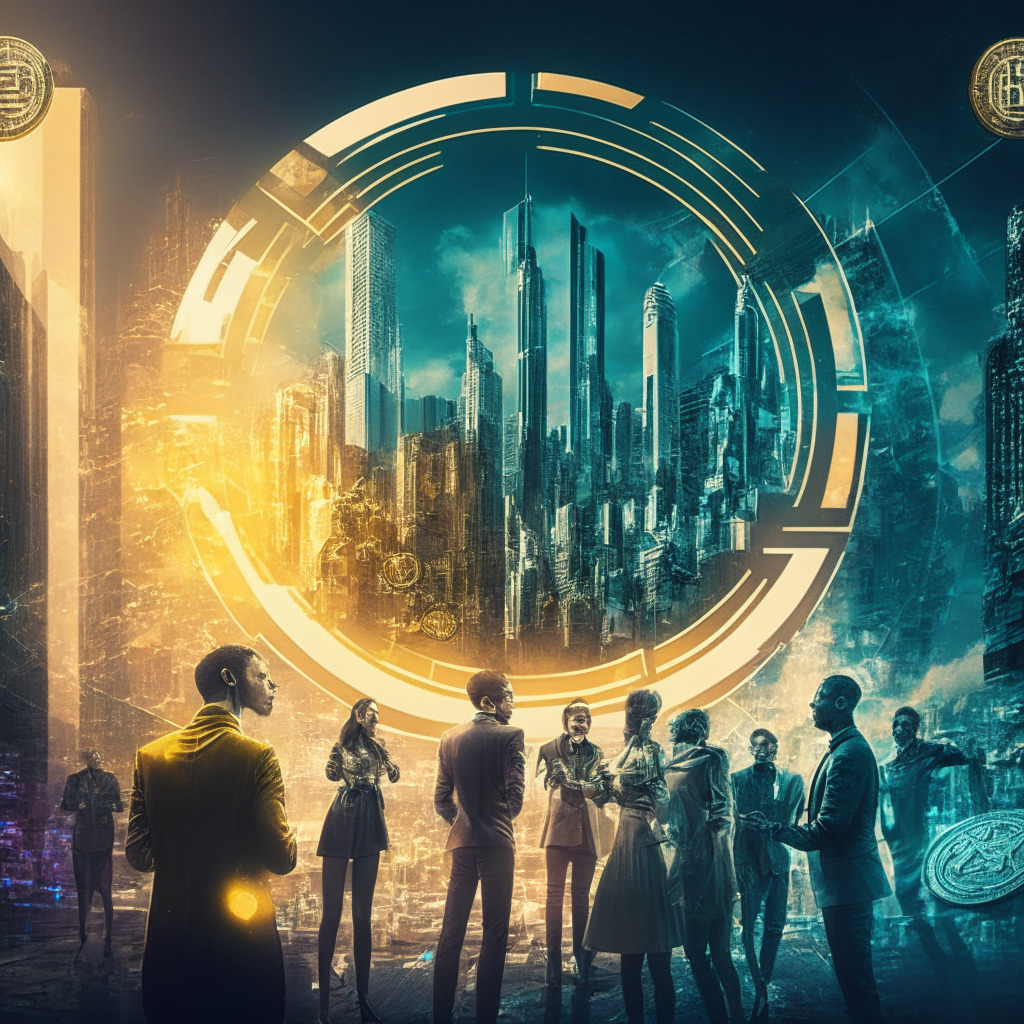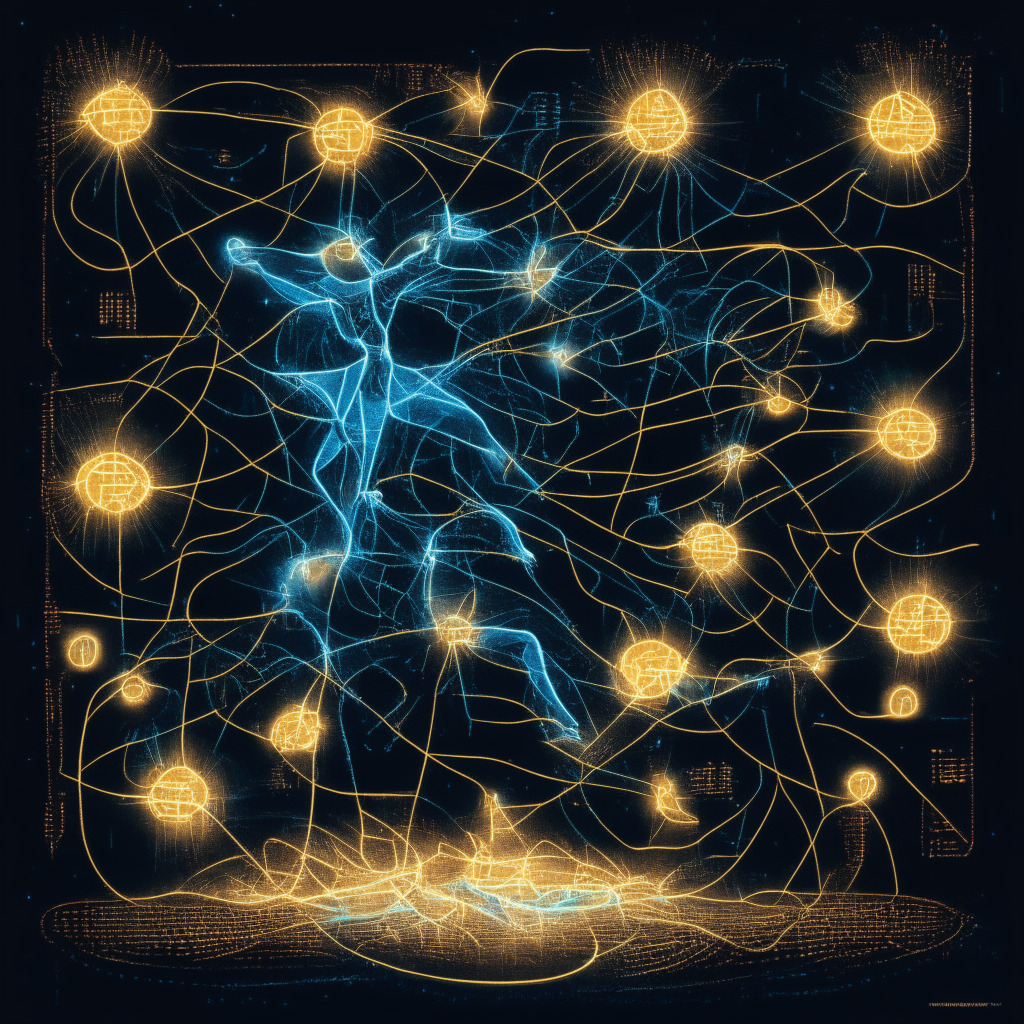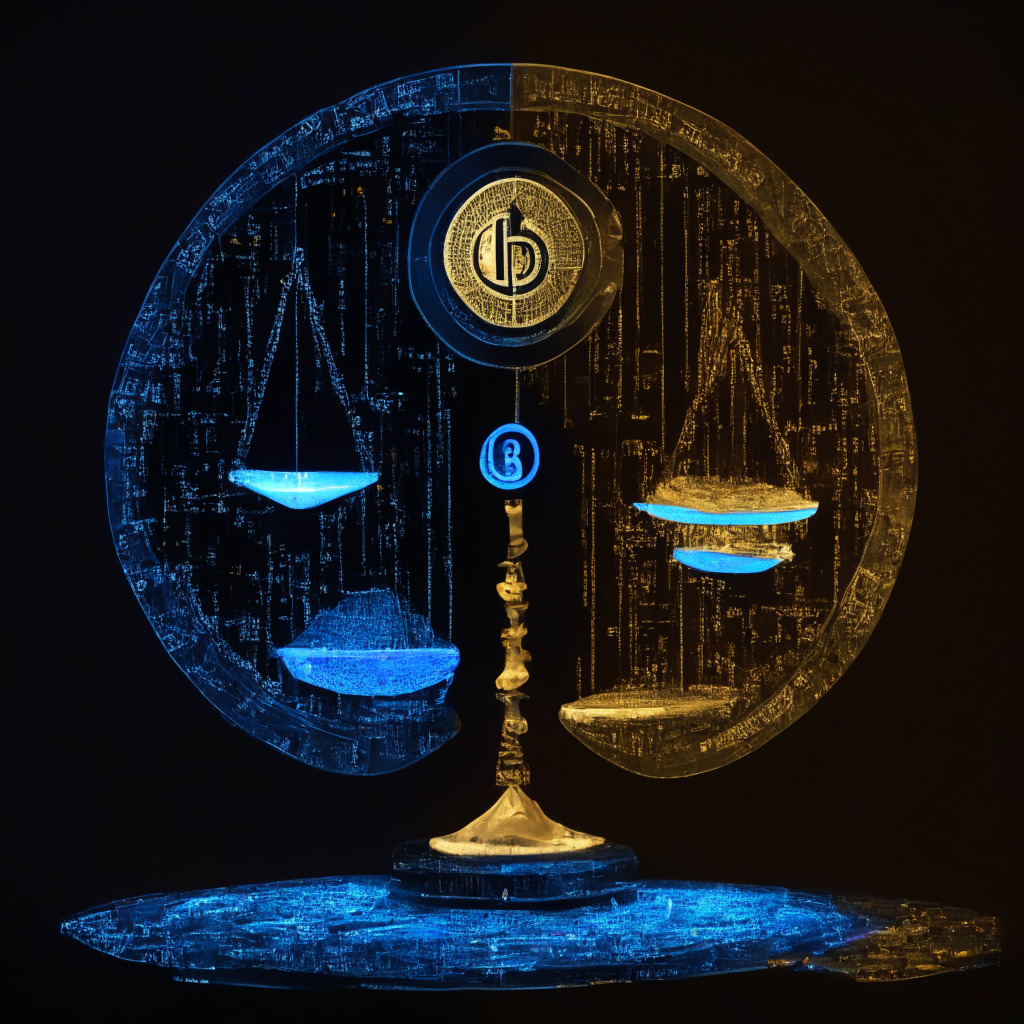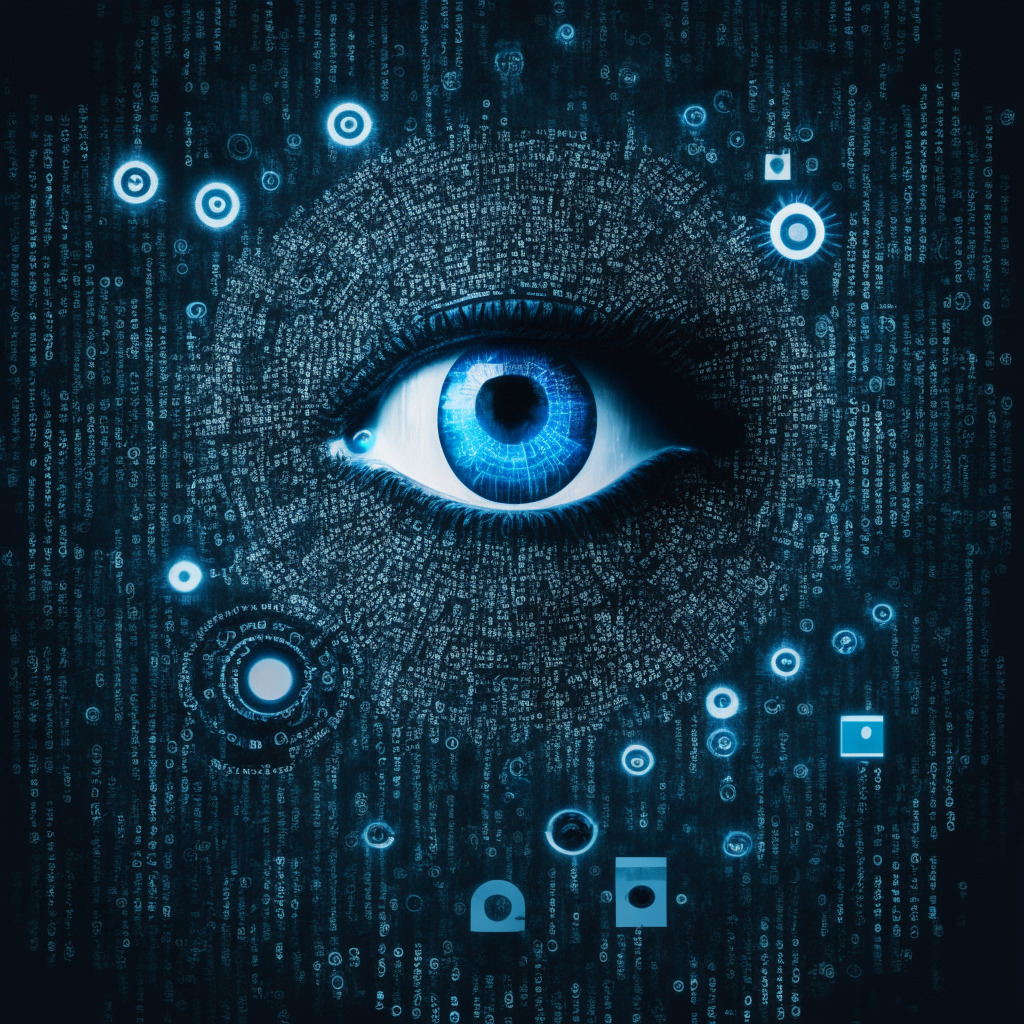Worldcoin, co-founded by OpenAI CEO Sam Altman, raises $115 million for its decentralized World ID and World App, a crypto wallet. The project uses zero-knowledge proofs for digital identity security, but faces concerns about surveillance, personal data misuse, and censorship.
Search Results for: Sam Altman
Worldcoin’s Iris Scanning: Ensuring Uniqueness or Compromising Privacy?
OpenAI CEO Sam Altman has secured $115 million in Series C funding for Worldcoin, a cryptocurrency project focused on the Worldcoin token and decentralized World ID. The project aims to distribute tokens based on individuals’ unique statuses, using iris scans for identity verification. However, privacy concerns and potential safety risks have drawn criticism.
Worldcoin’s Astonishing $115M Funding Round: Opportunities, Risks, and the Crypto Black Market
Worldcoin, a decentralized open-source protocol co-founded by OpenAI CEO Sam Altman, recently raised $115 million in a Series C funding round led by Blockchain Capital. The project focuses on the World ID and Worldcoin token, aiming to revolutionize the crypto ecosystem while addressing user security and privacy concerns.
OpenAI’s EU Dilemma: Adapting to AI Regulations or Withdrawing Services?
OpenAI CEO Sam Altman hints at potentially withdrawing ChatGPT services from Europe if compliance with upcoming EU AI regulations is unattainable. Altman calls for revising proposed regulations, with concerns over revealing copyrighted materials used in AI tools.
Balancing AI Innovation and Control: OpenAI’s 3-Pillar Strategy for Superintelligence Governance
OpenAI CEO Sam Altman and team warn of AI systems progressing beyond expert skill levels, affecting the global corporate landscape, and emphasize the need for governance of superintelligence. They propose three-pillars: balancing control and innovation, creating an international AI governance authority, and maintaining technical capability to control superintelligence.
Regulating AI: New Independent Agency vs. Strengthening Existing Authorities
OpenAI CEO Sam Altman proposes forming a government office for regulating AI technology, emphasizing the importance of safety standards, compliance, and independent audits. The debate continues on whether to create a new agency or strengthen existing regulatory authorities to balance technological advancements and societal protection.
AI Regulation: Striking the Balance Between Security and Innovation
In a Senate subcommittee session, OpenAI CEO Sam Altman testified before Congress, discussing the potential threats of generative AI models and the need for AI regulation. The speakers urged for immediate action, privacy protection, government oversight, and transparency. However, finding the right balance between controlling AI dangers and fostering innovation remains crucial to ensure a safe, responsible future.
AI Licenses: Striking a Balance Between Innovation and Safety in the Crypto World
OpenAI CEO Sam Altman testifies before U.S. Congress, advocating for AI regulation requiring safety standard compliance and system testing. However, concerns arise over potential over-regulation stifling innovation in the AI and crypto industries.
Worldcoin’s $100M Investment: Financial Inclusion vs Biometric Data Privacy Concerns
Sam Altman’s Worldcoin, an ambitious crypto project aiming for financial inclusion and universal basic income implementation, is near securing $100 million in investments. However, concerns regarding data privacy and ethical implications of collecting biometric information raise questions on striking a balance between goals and potential risks.
Worldcoin’s Billion-Dollar Valuation: Crypto Utopia, Privacy Risk, or Both?
Worldcoin, the crypto project led by OpenAI CEO Sam Altman, aims to raise $100 million in a new financing round, attracting investors with its vision of a universal digital currency distributed fairly using biometric iris scans. Despite controversy and concerns, Worldcoin continues gaining momentum in the crypto community.
AI’s ChatGPT Meets Crypto: Worldcoin, Iris Scanning, and Future Challenges
OpenAI’s Sam Altman is eyeing the crypto industry with Worldcoin, a globally-disruptive cryptocurrency using iris-scanning technology for secure identification. Amidst regulatory action and concerns surrounding user privacy, Worldcoin aims to reimagine transactions and identity verification while building trust in its security measures.
Worldcoin’s Ambitions: Global Financial Revolution or Just Another Crypto Cash Grab?
OpenAI’s Sam Altman is pushing to secure $100 million in funding for Worldcoin, a project aimed at creating a collectively owned, globally distributed cryptocurrency. With supporters touting its potential for financial inclusivity, skeptics question its real-world value and potential risks.
AI Regulation Debate: Halt in Development or Prioritize Ethics? Congress to Decide
A congressional hearing on AI oversight featuring prominent figures like OpenAI CEO Sam Altman, IBM’s Christina Montgomery, and NYU’s Gary Marcus will discuss potential regulations and address safety and privacy concerns. As AI regulation debates continue, the impact on industries like fintech, cryptocurrency, and ethical AI development remains uncertain.
Decoding The Future: Blockchain, Bitcoin, and the Fear of Centralized Digital Currencies
“Blockchain technology and cryptocurrencies are transforming financial infrastructures, providing a decentralised exchange method. Cryptocurrencies like Bitcoin could pave the way for a transparent, corruption-free global currency. However, concerns about government control, environmental impact, and the implications of Central Bank Digital Currencies (CBDCs) are also emerging.”
Unleashing AI on Cryptocurrency Markets: The Potential Blessings and Curses of ChatGPT
OpenAI’s AI-powered chatbot, ChatGPT is now able to extract current information from the web, expanding its role in providing insights about the mutable crypto world. Not only predicting crypto prices, the ChatGPT’s integration in crypto risk management enables the identification of emerging threats, making the system more robust.
Decoding the AI Regulation Puzzle: Tech Titans Vs. Lawmakers on Navigating AI’s Future
“In a closed-door meeting, tech leaders including Elon Musk and Mark Zuckerberg stressed the urgent need for AI regulation. The discussions revolved around AI’s potential dangers and benefits, with skepticism about unregulated technology’s negative impact, yet belief in AI’s groundbreaking potential with careful monitoring.”
Worldcoin’s Privacy Protocols Under Scrutiny: Balancing Innovation and User Safety
The unanticipated inspection of Paris-based Worldcoin’s office by France’s data watchdog, the CNIL, has intensified debates over its privacy protocols. This event underscores the strict scrutiny crypto projects are subjected to and the growing worries surrounding user privacy and data storage.
Navigating the Paradox of Worldcoin: Advancing Digital Identification vs Privacy Concerns
Worldcoin, a blockchain venture, recently enrolled over 9500 users in Argentina in one day. The project uses the users’ irises to verify their humanity, to combat AI programs mimicking human interaction. Despite criticisms concerning data privacy, sign-ups continue to surge worldwide. Interestingly, this project presents a paradox when examining technology, balancing digital identity verification against potential privacy compromises.
Regulating AI: Struggling Copyright Laws in the Era of Generative AI Models
The U.S. Copyright Office seeks insight on copyright concerns related to Artificial Intelligence (AI), particularly the use of copyrighted works to train AI and issues around AI-generated content. Pressing issues include AI’s capacity to mimic human artists. Media and entertainment industries grapple with unauthorised use of copyrighted materials for AI training. This discourse on AI, copyright, and regulation intertwines ethics, transparency, and surveillance matters.
Kenyan Government’s Inspection of Worldcoin: Balancing Innovation with Regulatory Caution
The Kenyan Government has established a committee to investigate the controversial Worldcoin initiative, with particular emphasis on potential security threats from Worldcoin’s data collection methods including iris scanning. This comes following significant opposition from various regulatory bodies and widespread concern about legal aspects and secure storage for sensitive biometric data.
The Digital Canvas Mourns While Crypto Regulation Tightens: A Week in Blockchain Review
“Cheems, the Shiba Inu who inspired countless memes and an NFT collection, sadly passed away. Governmental involvement in crypto continues, with Kenya probing Worldcoin and Somalia banning crypto-friendly messaging app Telegram. Individual Bitcoin miner successfully mined block 803,821, revealing competitiveness against mining pools.”
Worldcoin’s Launch amidst Ongoing Privacy and Security Reviews: An Uncertain Future
Worldcoin, a blockchain project, launched amid ongoing privacy and security assessments by the Bavarian Data Protection Authority and uncertainty from Germany’s Federal Financial Supervisory Authority. Despite controversies, Worldcoin’s identity verification process using iris scans and AI has gained considerable attention. Authorities’ examinations of Worldcoin’s data flows and user consent transparency continue.
Worldcoin’s Kenyan Controversy: Privacy versus Blockchain Innovation in Crypto Tech
“The recent police raid on Worldcoin’s Nairobi warehouse, in pursuit of collected data, has stirred controversy in Kenya. Concerns have been raised about potential privacy violations and misuse of sensitive iris data by Worldcoin’s project. This episode highlights how emerging crypto technologies are reshaping the discourse around privacy.”
Worldcoin’s Iris-Scanning Identity Project: Breakthrough Innovation or Data Privacy Nightmare?
“Worldcoin, a digital ID crypto project, introduces a digital identity system based on iris scanning to differentiate humans from AI entities. Despite concerns about data privacy, it has secured $115 million funding and over 2 million sign-ups. However, industry experts question Worldcoin’s ability to manage personal information securely.”
Security Concerns: Worldcoin’s Vision of Privacy in the Blockchain Future vs. Ethical Dilemmas
“Security vulnerabilities were detected in the Worldcoin project’s device, the Orb, which offers cryptocurrency for biometric data. This stirs serious debates about privacy and data use. Despite critics labeling the project a potential ‘dystopian nightmare’, Worldcoin continues its surge with a substantial increase in users and active Orbs.”
Navigating the Regulatory Crossroads: Cryptocurrencies, AI and SEC’s Gary Gensler’s Stance
“Gensler, the head of SEC, believes AI’s transformative potential warrants greater focus despite concerns about crypto market fraud. He emphasizes on AI’s significant risks including automating responsibilities and potential ‘cascading implications’ on assets within his jurisdiction. However, AI also offers opportunities in financial market, like providing investment advice.”
Unpredictable Dance: Blockchain’s Global Developments and Regulatory Twists
These developments underscore an exciting time for blockchain technologies, highlighting the intricate dance between regulators and innovators. They illustrate the challenges that emerge in a rapidly evolving digital ecosystem. However, the future scope for blockchain seems expansive and unpredictable.
WorldCoin’s Controversial Data Harvesting in Kenya: Opportunity or Threat?
Kenya’s Interior Ministry halts data harvesting initiative by WorldCoin due to contentious data collection methods. Despite assurances for data and transaction security, apprehension remains. WorldCoin’s operations highlight the divide between current legislation and the need for laws accommodating technological innovation and public safety.
Kenya’s Suspension of Worldcoin: A Necessary Security Step or a Hurdle for Crypto Innovation?
Kenya’s suspension of the Worldcoin cryptocurrency project due to security concerns raises questions about the trade-off in security, private data protection, and financial prosperity in the expanding crypto universe. Skepticism exists over Worldcoin’s digital ID system involving sensitive iris scans and potential data misuse. The instance underscores the tension between digital advancement and safeguarding privacy rights in the crypto sphere.
Worldcoin’s Controversial Iris-Scan Tech: Blockchain Innovation or Privacy Nightmare?
“Worldcoin, a crypto protocol that uses iris scans for global identification, has been halted in Kenya due to concerns over data protection. This raises questions on privacy and potential user exploitation in the name of innovation, sparking investigations beyond Kenya’s borders. The crypto community closely watches this as it could define the future of blockchain technology.”
Charting the Future with Worldcoin: Revolutionizing Crypto and Global Identity or Igniting Privacy Concerns?
Worldcoin is a high-profile project blending cryptocurrencies, AI, and blockchain technology to establish a global, transparent identity and commerce system. A unique feature, World ID, utilizes an eye-scanning device that distinguishes human identity from AI robots, while also paving the way for decentralized, token-based commerce and potential income equality solutions.
Unmasking Worldcoin: The Human-AI Interface and the Quest for Proof-of-Personhood
Worldcoin, a new crypto project, operates on the principle of proof-of-unique-personhood to prevent deep-fake bots. Despite rapid engagement, concerns about potential Orwellian surveillance and exposure of sensitive biometric data have arisen. Advocates argue that the collected data is converted to untraceable hash codes and no raw human data is stored. Ethereum founder Vitalik Buterin underscored the risk of centralized models not fully safeguarding data.









